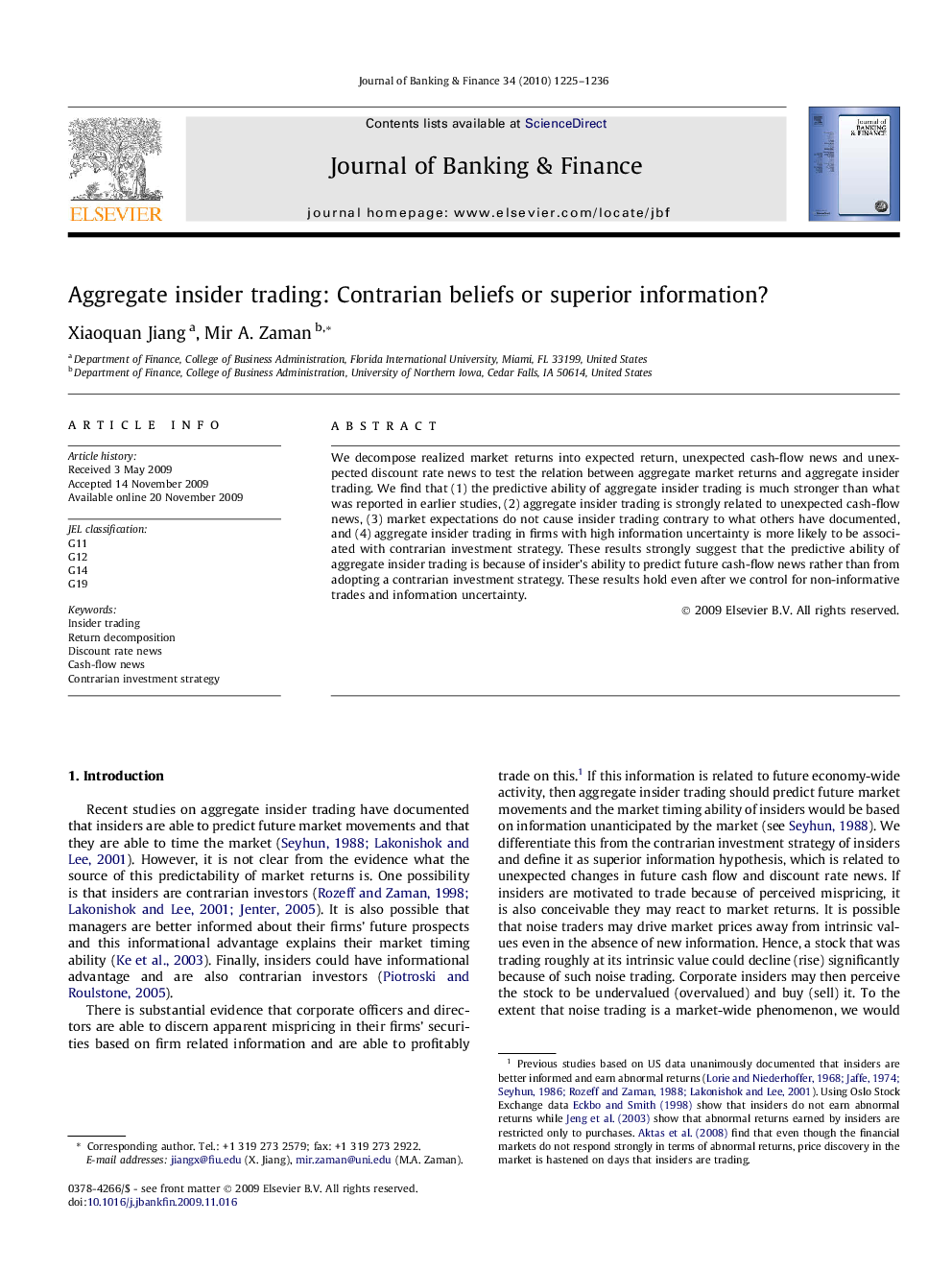| Article ID | Journal | Published Year | Pages | File Type |
|---|---|---|---|---|
| 5090100 | Journal of Banking & Finance | 2010 | 12 Pages |
Abstract
We decompose realized market returns into expected return, unexpected cash-flow news and unexpected discount rate news to test the relation between aggregate market returns and aggregate insider trading. We find that (1) the predictive ability of aggregate insider trading is much stronger than what was reported in earlier studies, (2) aggregate insider trading is strongly related to unexpected cash-flow news, (3) market expectations do not cause insider trading contrary to what others have documented, and (4) aggregate insider trading in firms with high information uncertainty is more likely to be associated with contrarian investment strategy. These results strongly suggest that the predictive ability of aggregate insider trading is because of insider's ability to predict future cash-flow news rather than from adopting a contrarian investment strategy. These results hold even after we control for non-informative trades and information uncertainty.
Related Topics
Social Sciences and Humanities
Economics, Econometrics and Finance
Economics and Econometrics
Authors
Xiaoquan Jiang, Mir A. Zaman,
